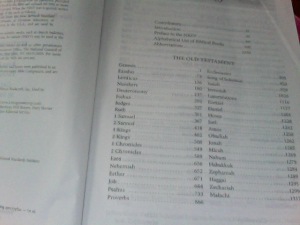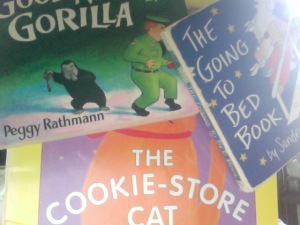My sons got their summer reading assignments a few days back; Colin and the rest of the seniors will read The Alchemist (Paulo Coelho, Alan R. Clarke, trans.; New York: HarperCollins, 1993) while Jared and the incoming 8th graders will read The Contender (Robert Lipsyte; New York: Harper Collins, 2003, reissue of the 1967 novel). They’ll have a home on our tilted, currently-being-read bookshelf for the next few weeks. When Colin is done with The Alchemist, it will return to its usual spot until I reread it in another year or so. The fate of Jared’s book is yet to be determined. If he loves it, it will stay; if he couldn’t care one way or the other, it will go to the library. Only what’s really valued remains in our family collection – everything else is released, finding a life in someone else’s hands and heart.
Words are important, holy even. A book, a poem, a saying, a song can change our inner worlds and the outer worlds we call home. The words that transcend their particular time and place earn the title classic, or the adjective masterpiece. Libraries all over the world offer these to their borrowers because in some indescribable way they enrich human life through their beauty and truth. These words that touch the best part of us, they are our verbal inheritance and our linguistic legacy – gifts from the past for our present, handed down from us to the future. Who we were, who we are, who we will be: all these found in the words, in the books, in the countless libraries.
There’s a library handed down in almost every time and place, such a common experience in this literate age that we take no note of it. It’s a collection, sometimes collections, of our encounters with God and neighbor. It’s a record of mistakes and tragedy, a song of praise and beauty and gratitude for the blessings of life. Sometimes it’s poetry, prose, history, and personal letters; it’s available in all kinds of languages and in all kinds of cultures. Extraordinary and common. Whether Buddhist, Hindu, Jewish, Muslim, or Christian, sacred scripture is handed down. It’s the deepest expression of our longing for God and our love (or lack of love) for one another, handed down in paperback and hardcover, downloaded on a Kindle or heard on tape.
For whatever reason, we often think of this library as a single book – impressive and weighty, but not particularly helpful. Such a tragedy to have the library of the soul at our fingertips, freely given but rarely opened…
 Perhaps that’s the biggest lesson a library can teach: all the voices of the past, in all the words of today, have no power to transform us and our world unless we delve into them. All the voices of the present will have no power to bless future generations unless we hand them down.
Perhaps that’s the biggest lesson a library can teach: all the voices of the past, in all the words of today, have no power to transform us and our world unless we delve into them. All the voices of the present will have no power to bless future generations unless we hand them down.


